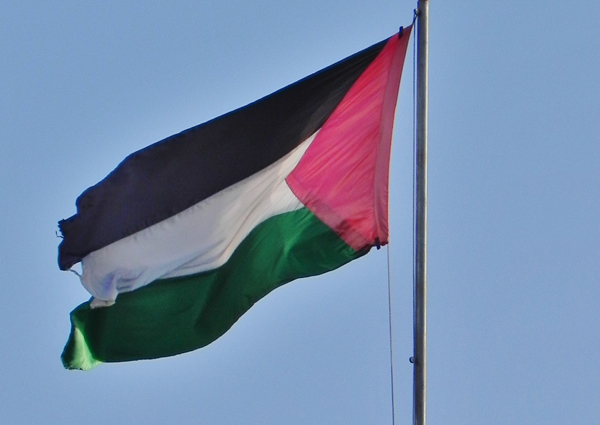Gusties’ Views on World News is an ongoing section in which Gustavus students share their opinons on current events.
The first-ever Palestinian embassy in Western Europe was opened in Sweden on Tuesday, Feb. 10. In addition to this newly signed deal, Swedish Prime Minister Lofven has agreed to provide financial support to Palestine for 5 years totaling roughly $175 million. The implications of this not only affect Palestinians but Israeli and Swedish patrons alike.
In regard to the establishment of the Palestinian embassy “It sends a message that they are a recognized state, and it shows forward thinking on Sweden’s part, but also can be seen as problematic, specifically because of Sweden’s unstable current political situation,” Cecilia Tiscornia, a first-year Sweden native said.
The news of the embassy disturbed Israeli Foreign Minister Avigdor Leiberman. He criticized the Swedish Prime Minister Lofven on the grounds that, neither a declaration nor other moves by external players can replace the on-going talks between Palestine and Israel.
Sophomore Josh Weisenfeld recognized the importance of this decision, but called caution to what this means for the ongoing Israeli-Palestinian conflict.
“I think it’s important that both Israel and Palestine are recognized as sovereign nations, and an embassy is a vital step in the process of recognition. Instead of having countries decide between which embassy to embrace, there needs to be a truly two-state solution where westernized nations recognize both as their own nations,” Sophomore Josh Weisenfeld said.
He continued with his thoughts on the previously two-state solution.
“The two state solution will be a long road. Currently, many countries around the world don’t believe Israel should be recognized as its own state or have its own borders, even though its only been 60 years since they were officially recognized as their own nation,” Weisenfeld said.
When asked what the future might bring in terms of a peace agreement between the two countries, he laid out a parameter in which all parties could be content.
“I think it’s important that both Israel and Palestine are recognized as sovereign nations, and an embassy is a vital step in the process of recognition.” —Josh Weisenfeld
“I do think developing a two state solution is important and will be the best of a bad situation in resolving some of the violence seen in the Middle East. The establishment of an embassy for each will be seen as being much more sincere,” Weisenfeld said.
While Israel currently holds a seat in the UN, Palestine recently submitted an official bid for statehood to the UN Security Council, but failed to be adopted. Relations between Sweden and Israel have soured as of late, and were illustrated when Swedish Foreign Minister Margot Wallstrom called off a visit to Israel earlier this year.
Late in 2014, the European Parliament voted to recognize Palestine as a state in principle and was strongly supported by the MEP (Members of the European Parliament).
Junior Mahmoud Abu Eid, a Palestinian currently living in Jordan was asked his thoughts on the recent developments.
“The Palestinian issue has been on the radar for a long time, regarding homeless people with no state, and the creation of an embassy is a leap forward. In order to resolve the conflict between Israel and Palestine the two state solution is important. When you open an embassy for both states you recognize both of them, and that drives other countries to follow as well. It will help figure out what solutions are beneficial for both sides,”Abu Eid said.
“Since 1948 Palestinians have been struggling with the Israeli-Palestinian conflict and having an answer after a long time of waiting, its good and it gives the youth something to be happy about,” Abu Eid said.
Many are unaware of the travel restrictions that create enormous barriers for stateless people from moving around freely looking for residence and or other basic necessities. Eid further detailed specifically how this affects stateless Palenstinians.
“In order to resolve the conflict between Israel and Palestine the two state solution is important.”—Mahmoud Abu Eid
“As of right now, they do not have passports, but travel documents, so traveling to different countries and acquiring an education is really hard because there are no official government institutions. It’s just the PLO (Palestine Liberation Organization), so recognizing the whole issue opens up a whole new perspective, and will help many stateless Palestinians get an education, basic health requirements, and basic living status,” Abu Eid said.
While conflict between Israel and Palestine is still prevalent in the news, it is encouraging to see peaceful solutions like this being brought forward for the benefit of the states. It is unlikely that a final resolution will be made anytime soon. Both agree on the importance of Israel and Palestine being recognized as sovereign nations andit would be an integral step in that recognition starts with the establishment of Embassies.
-Mark Siatta
